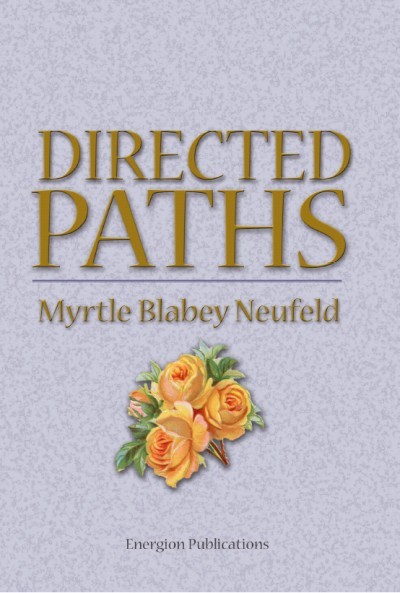Acts of the Apostles and 21st Century Action
I publish a couple of books that use Acts of the Apostles as a source for principles to guide the 21st century church. I publish such books with a certain amount of trepidation, as it’s very easy to apply material piecemeal, which results in discovering that the biblical book in question tells us to do what we wanted to do in any case.
Two books that deal with this issue in the Energion catalog are Transforming Acts: Acts of the Apostles as a 21st Century Gospel by Bruce Epperly and Seven Marks of a New Testament Church by David Alan Black. Now considering that the authors of these two books are some distance apart on the theological spectrum—Bruce is United Church of Christ and Dave is Southern Baptist—one might suspect that there is a wide gulf between what they see as most important or applicable in the New Testament church. In actuality, I found myself more surprised by the level of agreement involved. There are certainly differences, and yet there are themes that are clear to both authors.
I suspect the level of agreement results from greater care in studying the text. No, I don’t believe careful study will make us agree on everything. Careful study tends to do two things: 1) It discovers clear themes, and 2) it clarifies and outlines differences and the reasons for them. I will repeat what I have said before: Most of the heat in arguments between Christians results from not understanding the way in which we’re using our sources. If we did understand the source of an opponent’s beliefs, that wouldn’t mean we’d agree, but it would reduce frustration. There’s nothing like having two people look at a text and clearly see different things. There is a strong temptation to assume the other person is stupid, obtuse, ignorant, or perhaps demonically deceived.
Yet Christianity is a faith that is built on studying sources. We may differ on what those sources are, whether it’s the biblical canon, writers in the theological tradition, or authoritative institutions. The point is not to eliminate the inputs because they might be misunderstood or misapplied. Rather, I would suggest it is to study these sources with an awareness of the differences.
One of the ways to do this is to actually study pieces of biblical literature as they were written. If I get to make a selection of texts, I can definitely bias the results. That doesn’t mean that I will find that everything there applies to my everyday life now, but I do need to be aware of the things I’m not applying and why I’m not applying them.
I started re-reading Acts of the Apostles the other day, and was immediately struck by some of these kinds of issues. Let me note just a few.
- Acts 1:2-3 – Jesus teaches the disciples for some time following the resurrection. We don’t have a formal record of this teaching. Is this a plug for apostolic tradition? If it is, note that Paul wasn’t in on this, yet has provided us with much of New Testament theology.
- Acts 1:4-5 – Awaiting the promise of the Spirit. Acts was most likely written before John, but here we have that continuing teaching of the Holy Spirit, and when the Spirit does come upon the disciples, it seems to come upon the whole group. Is this a foundation for the belief that revelation continues and can come to each one of us?
- Acts 1:21-26 – Choosing a successor to Judas by lot. This one presents some interesting issues. I enjoyed teaching this to a class in a church that had just completed a search for a new pastor. I asked them if their procedure, much different from the one here, was biblical, which resulted in an energetic discussion. It’s interesting to me that we have no evidence here of prayerful discussion. Peter presents his interpretation of scripture, then two people are chosen that fill the requirements (we don’t hear the source of those requirements), and then one of the two is chosen by lot. God is invoked, but God is invited to choose between the two candidates selected by the apostles. At which point the chosen person disappears into history. Most of the book is about Paul, a person who does not fulfill the requirements and is chosen by a completely different method. So is God’s way casting lots or should we wait for the lightning bolt?
- Skipping Acts 2 and going to 3:1-10 – Is this the sort of thing that should characterize a modern church? If so, we’re largely too tame. And we should, of course, consider chapter 5 with Ananias and Sapphira. Church discipline, anyone?
My purpose in making this truncated list is to show that there are things here we do (baptism, preaching, even healing [in some sense]), and others that we don’t (casting lots), and it’s worthwhile to realize that something more than just grabbing sentences or paragraphs and applying what they “clearly teach” is going on. I’m not complaining about that extra stuff going on. That’s part of life and yes, part of faith. The problem comes in when we try to pretend that we’ve dumped everything extra. (Note that there are churches who use a form of lots in selecting leadership, so that is a valid item to list.)
The next question to ask yourself is just why you do certain things and not others. Why would you preach, baptize, accept into membership, but not heal? Why do you find it appropriate to await the baptism of the Holy Spirit, but not to choose all church leadership by casting lots? (Notice how I slipped “all” in there when it’s not in the text?) Understanding how we get wherever we are can help us understand one another. It might even help us with course corrections.

